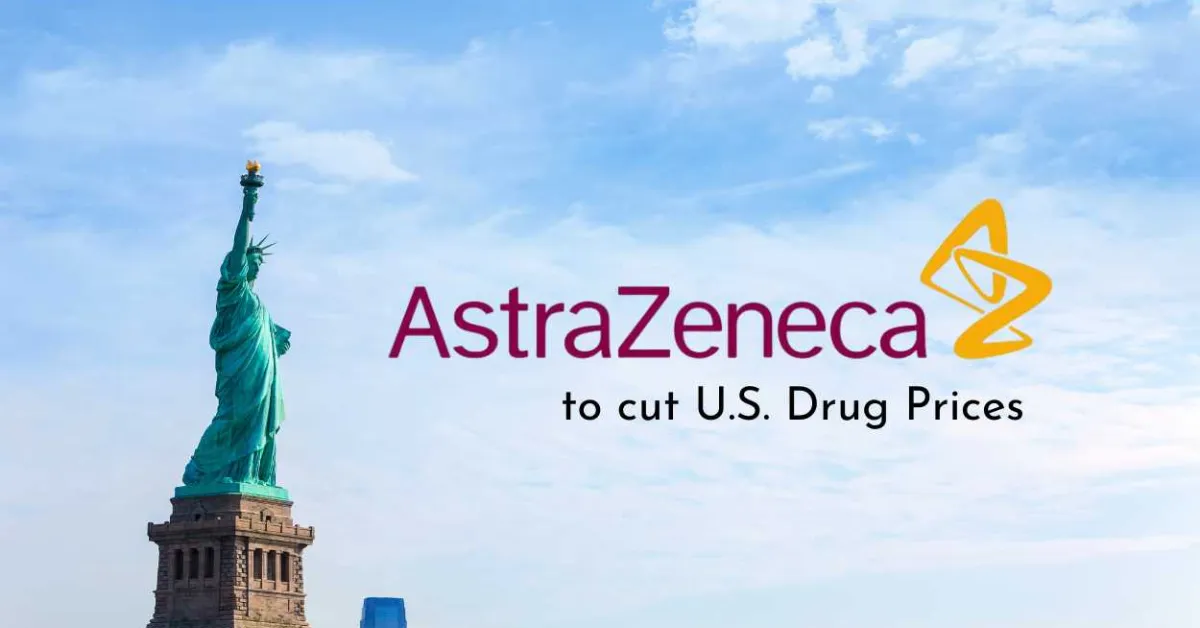AstraZeneca has announced a historic agreement with President Donald J. Trump’s administration to reduce the cost of prescription medicines for American patients while maintaining the nation’s leadership in biopharmaceutical innovation.
At a White House event, AstraZeneca CEO Pascal Soriot joined President Trump and senior officials to confirm that the company has voluntarily met all four requests outlined in the President’s July 31 letter. The agreement enables American patients to access AstraZeneca medicines at prices aligned with those in other wealthy nations.
Under the agreement, AstraZeneca will offer Direct-to-Consumer (DTC) sales to eligible patients with prescriptions for chronic diseases at discounts of up to 80% off list prices. The company will also participate in the TrumpRx.gov platform, allowing patients to buy medicines directly from AstraZeneca at reduced cash prices.
AstraZeneca has further reached an agreement with the U.S. Department of Commerce to delay Section 232 tariffs for three years, facilitating full onshoring of its manufacturing operations. All medicines sold in the United States will be produced domestically, supported by a 50 billion USD investment in manufacturing and R&D over the next five years. The initiative aims to help AstraZeneca achieve 80 billion USD in total revenue by 2030, with half generated in the U.S.
Pascal Soriot stated, “Every year AstraZeneca treats millions of Americans living with cancer and chronic diseases and, as a result of today’s agreement, many patients will access life-changing medicines at lower prices. This new approach also helps safeguard America’s pioneering role as a global powerhouse in innovation and developing the next generation of medicines. It is now essential other wealthy countries step up their contribution to fund innovation.”
The company’s commitment to American patients is also reflected in major new manufacturing projects. AstraZeneca recently broke ground on its largest manufacturing facility to date in Virginia, which will support its weight management and metabolic portfolio as well as its antibody drug conjugate cancer pipeline. Additionally, a newly expanded facility in Coppell, Texas, will open next week, followed by a new cell therapy manufacturing facility in Rockville, Maryland, early next year. The company’s second major R&D center in Cambridge, Massachusetts, is set to open in late 2026.
The United States is AstraZeneca’s largest market by sales and home to 19 R&D, manufacturing, and commercial sites. The company employs over 25,000 people in the U.S., supporting more than 100,000 jobs nationwide, and contributed around 20 billion USD in overall economic value to the American economy in 2025.
President Trump also announced that this marks the second agreement with a major pharmaceutical company under his administration’s efforts to align American drug prices with the lowest paid in other developed nations under the “most-favored-nation” (MFN) pricing model.
The agreement grants every state Medicaid program access to MFN drug prices on AstraZeneca products, generating hundreds of millions in savings. It also ensures that foreign nations can no longer use price controls to benefit from American innovation by guaranteeing MFN pricing for new AstraZeneca medicines. Additionally, AstraZeneca will repatriate increased foreign revenue resulting from the President’s trade policies and offer deep discounts when selling directly to American patients.
Approximately nine million American patients treated with AstraZeneca medicines will benefit from lower prices. The 25 million Americans with asthma and 16 million with chronic obstructive pulmonary disease (COPD) will also see significant cost reductions. AstraZeneca’s BEVESPI AEROSPHERE inhaler for COPD will be available at a discount equal to 654% of the deal price, BREZTRI AEROSPHERE at 98%, and AIRSUPRA for asthma at 96%.
To strengthen domestic supply chains, AstraZeneca will invest 50 billion USD in U.S. manufacturing and R&D by 2030. The new Virginia facility will produce advanced pharmaceutical ingredients for chronic disease and oncology pipelines, creating 3,600 skilled jobs.
President Trump emphasized that this agreement ends global freeloading on American pharmaceutical innovation, noting that Americans pay over three times more for brand-name drugs than other developed nations. Despite representing less than 5% of the global population, the U.S. contributes about 75% of worldwide pharmaceutical profits.
Trump underscored his administration’s commitment to putting American patients first, highlighting a series of actions, including the May 12, 2025, Executive Order “Delivering Most-Favored-Nation Prescription Drug Pricing to American Patients,” and the subsequent agreements with leading pharmaceutical companies, to bring drug prices in line with international levels.
He concluded, “In case after case, our citizens pay massively higher prices than other nations pay for the same exact pill, from the same factory, effectively subsidizing socialism abroad with skyrocketing prices at home. So we would spend tremendous amounts of money in order to provide inexpensive drugs to another country. And when I say the price is different, you can see some examples where the price is beyond anything, four times, five times different.”














